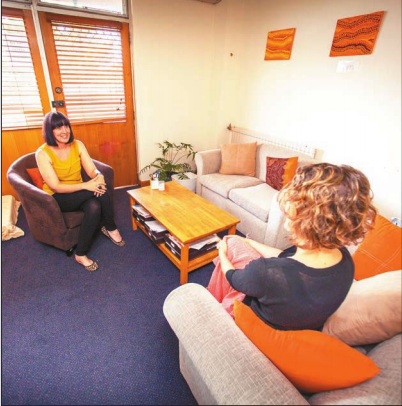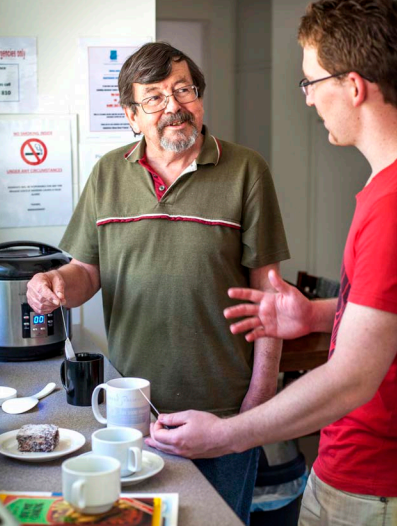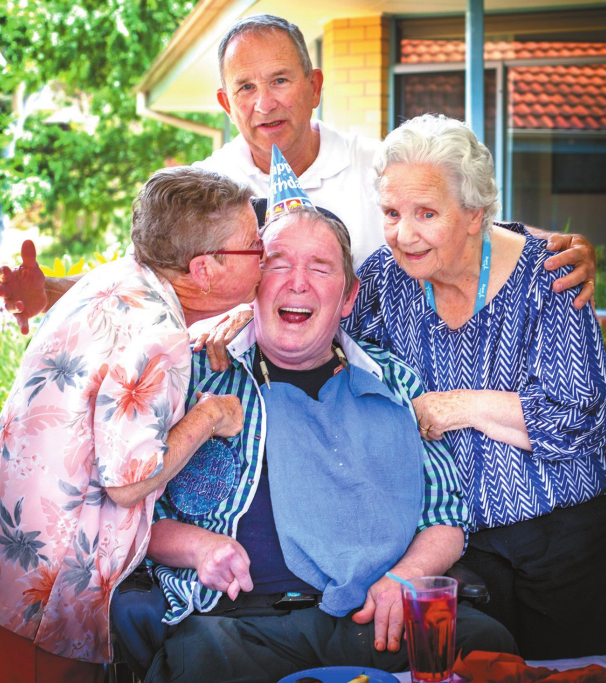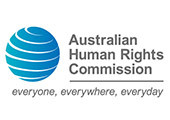CatholicCare CEO Anne Kirwan
Anne Kirwan is well aware of the paradox of Christmas – she relishes the celebration with her family and her seven-year old daughter is already listening to carols in the car.
But the psychologist and CEO of CatholicCare knows well the other side of Christmas – the pain of so many people whose Christmas is not about over-indulging in food or the delight of gift-giving but heartache, loneliness or violence. Christmas is a peak time for many of CatholicCare’s services, and the organisation’s dedicated staff work hard to make it a safe and special time for clients, as well as their own families.
“People have this image of what Christmas is, but the reality is that it is a very stressful time for many people, and it can also be very traumatic,” Ms Kirwan said.
Catholic Voice recently spent time visiting some of CatholicCare’s services and learning about the increased demands and tensions over the Christmas and holiday period.
The organisation’s family and relationship counselling services are based at Red Hill, and psychologist Megan Matson, who manages the programs, said they were inundated.
“We deal with everything from communication issues to grief and loss, separation, drug and alcohol use, mental health issues and parental conflict and violence,” Ms Matson said.
“Christmas is promoted as a happy time of family togetherness but for a lot of our clients it is extremely stressful. There is a lot of pressure on parents to get things right and make everything happy for the kids, to give them a memorable Christmas. “But if the parents aren’t together and suddenly Dad wants to take the kids to his family, there’s huge disruption to the normal arrangements and that can cause a lot of resentment and tension. Unfortunately we often see an increase in family violence over the holiday period.”
Ms Matson said it was important to normalise Christmas, so parents did not feel so pressured.
CatholicCare has counsellors in 58 Catholic schools across the Archdiocese, and manager Hannah Turner said some families become anxious about how they will cope at Christmas.“We tell our clients ‘you can do Christmas however you like’,” she said. “There is such an ideal and it’s important we set realistic expectations, around what a family is and what to do about presents. Perhaps a mum is a single parent now, for the first time, but she and her children are still a family, just in a different way. “There’s also great pressure to provide an Xbox or Nintendo or whatever, so we talk about what it means to be a good parent and how we define that. But still, some people go to great lengths to provide things they can’t afford.”
“I don’t want to say panic, but there is certainly anxiety in not being able to access services over the Christmas period and wanting to know where they can seek help,” Ms Turner said.
MINOSA House resident Robert Gold has a cuppa with support worker Paul Sarnacki.
CatholicCare support worker Paul Sarnacki will be cooking and eating lunch with six homeless men on Christmas Day. He works at MINOSA House in Ainslie, which provides supported accommodation for up to three months. “We’ll give out some small presents and then cook up a feast, or maybe even a barbecue, depending on what the men want to do,” Mr Sarnacki said.
Case manager John Kennedy said many clients have closed their mind to Christmas and did not recognise it. “Christmas can be a horrible time for these fellas,” Mr Kennedy said. “I know one bloke who had a vegemite sandwich for Christmas lunch.
“More often than not Christmas is a time of pain which brings to mind all their problems. Many of them have been through institutions and their journey has taken them away from their families, not closer.”
MINOSA House resident Robert Gold said it was a huge shock to find himself homeless, after his former accommodation situation broke down.
“Christmas is just another day for me but at least I’ll be with others and have a roof over my head, which is the main thing,” Mr Gold said.
Billy Boyes celebrates his 66th birthday with brother Stewart, Stewart’s wife Yvonne and their Mum Kathy.
Christmas will be celebrated at the Dorothy Sales Cottages with a lunch for its eight residents, their families and the staff. It is a residential home in Hughes for people with acquired brain injury, who would otherwise be in aged care homes.
Manager Julie McRoy said it was reassuring for families to know their loved ones were well cared for and not alone. “The day I came for myinterview I walked out and thought, there is no way I could work there, it’s depressing and I just couldn’t do it,” Ms McRoy said.
“But you know, after five years, I can’t think of anywhere else I’d rather be. It’s the contact
I have with the residents and the environment. It gives me such a sense of satisfaction to be here.
“The staff are here at Christmas to care for the residents and that reflects the wonderful relationships we have. There are many more people worse off, who would have no one around them and no Christmas lunch.”

- Sobering Up Shelter manager Lyndall Evan
One place no one expects to end up at Christmas is the Sobering Up Shelter, but it is the busiest time for the service, which operates on Thursday, Friday and Saturday nights.
Police and ambulance officers bring highly intoxicated young people, who spend the night in one of five secure rooms and are closely monitored by the three staff on duty.
The alternative is being locked in a police cell. Staff rouse the person every 15 minutes, for the first four hours, to ensure they get a response. Manager Lyndall Evans said most people did not know about the Sobering Up Shelter and it was often a shock for families to receive a phone call asking them to collect their loved one.
“We consider being intoxicated a health issue so we talk to clients about their drug and alcohol use and focus on education and prevention,” Ms Evans said.
“Most of our clients are aged 18 to 24, and they are mostly men. Young people often do what is culturally acceptable in this country, which is go out and get drunk. Our focus is, what do you need to do to ensure you do not to come back here again.”
By CatholicVoice Editor Felicity de Fombelle.
Photos by Loui Seselja.
This article originally appeared in The Catholic Voice – the Newspaper of the Archdiocese of Canberra and Goulburn.
To read the December Edition, please click here.

















